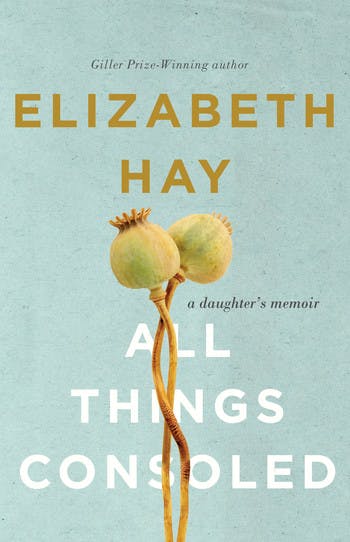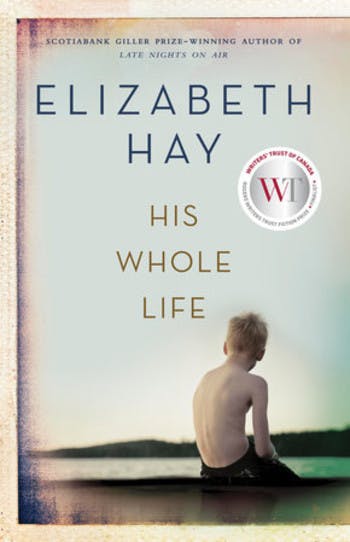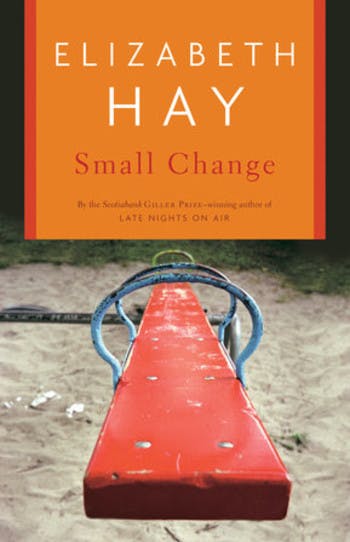Videos
Elizabeth Hay on His Whole Life
Award History
2018 Winner
Hilary Weston Writers’ Trust Prize for Nonfictionfor All Things Consoled: A Daughter’s Memoir
Jury Citation
"Elizabeth Hay’s loving, exacting memoir, All Things Consoled, details the decline of her elderly parents with unflinching tenderness. The path she and her family travel is crooked and long, filled with hospital beds and doctors’ visits, foggy minds, and shuffling confusion. But Hay’s prose elevates this ordinary rite of passage — the death of one’s parents — to something rare and poetic. All Things Consoled becomes, itself, a consolation for anyone despairing at the loose ends that parents leave behind. Page-after-page this is a masterclass in observation — a lesson in how meaning can emerge from grief." — 2018 Hilary Weston Writers' Trust Prize for Nonfiction Jury (Michael Harris, Donna Bailey Nurse, and Joel Yanofsky)

Jury Citation
“Set on the cusp of personal and national change, His Whole Life is a resonant and penetrating novel that explores the complex evolution of love and affection through a rich array of relationships. At this story’s centre are a mother and son so richly realized their delights, pleasures, and aches become the reader’s. Elizabeth Hay deftly – in elegant and luminous prose – explores how life can betray us or bring us to the surface, and all the subtle ways that one human being can fail, or serve, another.” — 2015 Rogers Writers’ Trust Fiction Prize Jury (Aislinn HUnter, Shani Mootoo, and Richard Wagamese)

2001 Winner
Writers’ Trust Engel Findley AwardJury Citation
“How remarkably Elizabeth Hay’s fiction has developed, both in vision and technique, since her extraordinary debut. The subject matter she tackles has become deeper and more powerful, and her negotiations of that mysterious, unpredictable, hugely complex territory, the thinking human heart, has becomes all the more risky and compelling. It’s not just the intricacy and subtlety of her treatment of love and friendship, betrayal and regeneration that distinguish Elizabeth Hay’s writing; equally, it’s the artistry she brings to that most capricious and cantankerous of mediums, language. There’s an astonishing strength and beauty to her prose, all the more remarkable because her words never call attention to themselves; they seem effortlessly to shape the unexpected, marvelous, often painful meetings of characters and situations, actions and understandings that map Hay’s imaginary worlds and that bear so importantly and movingly on our own.”
— 2001 Marian Engel Award Jury (Anita Rau Badami, Janice Kulyk Keefer, and Nino Ricci)
